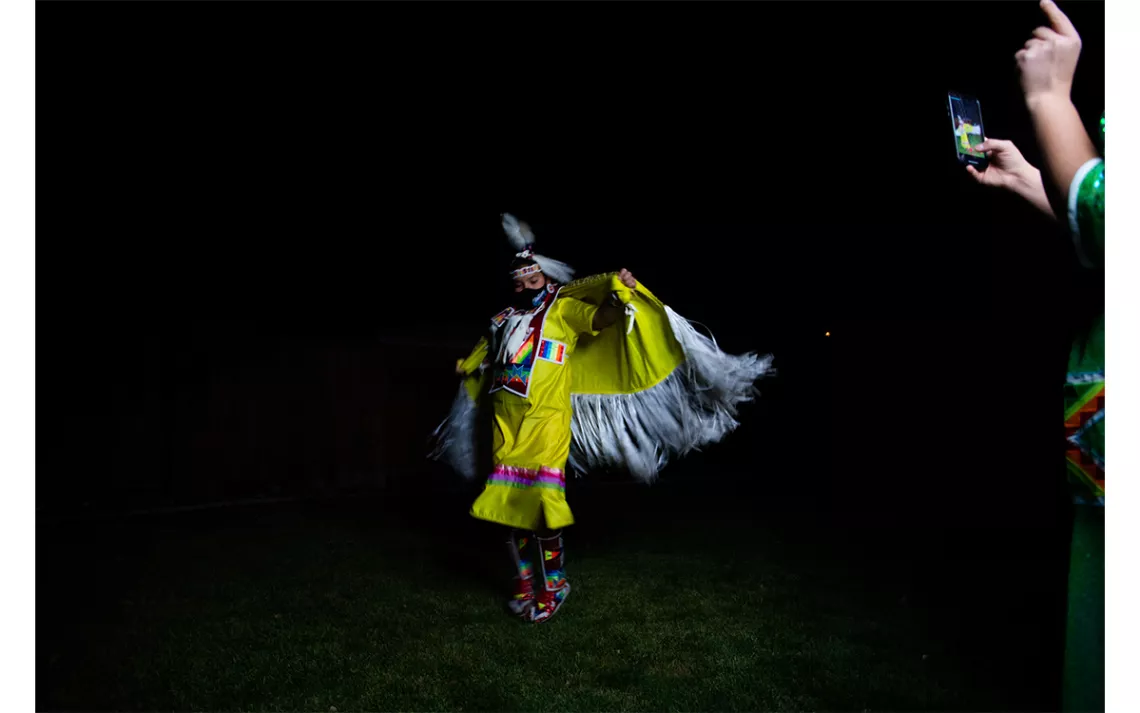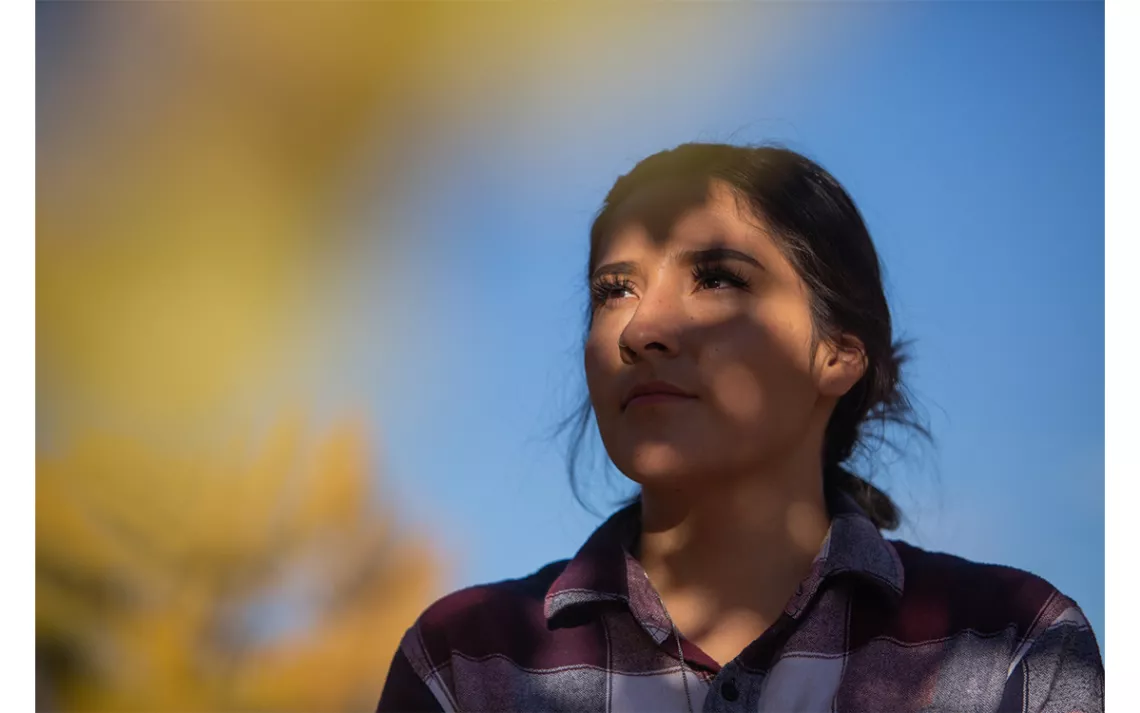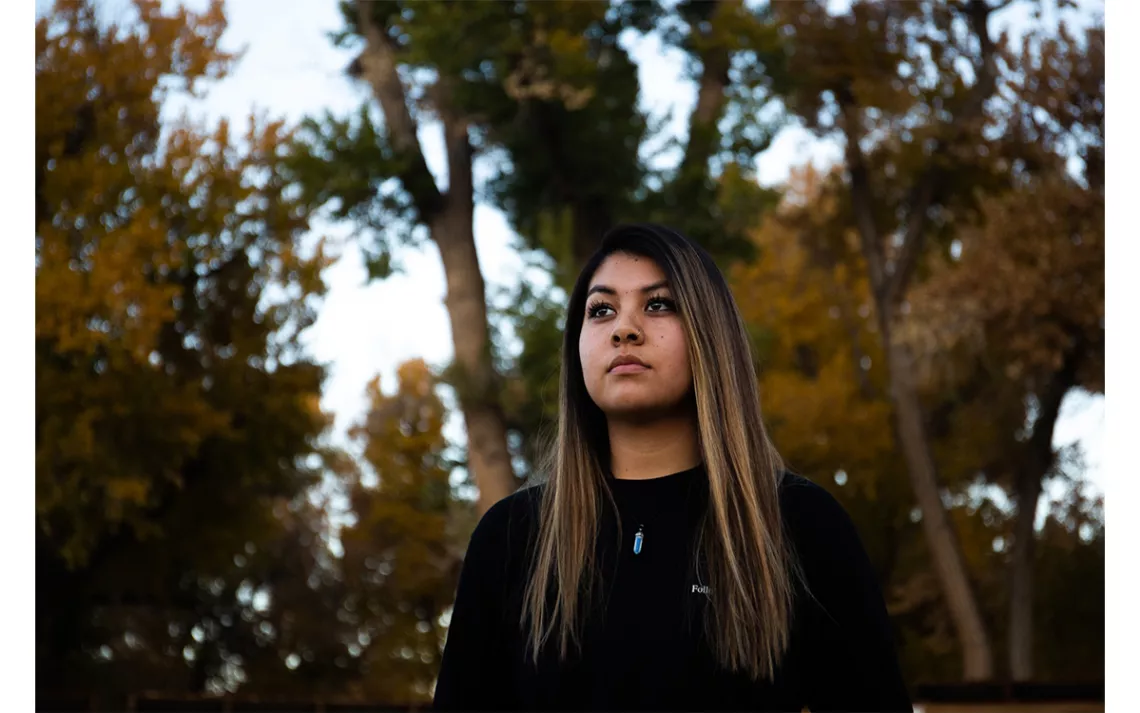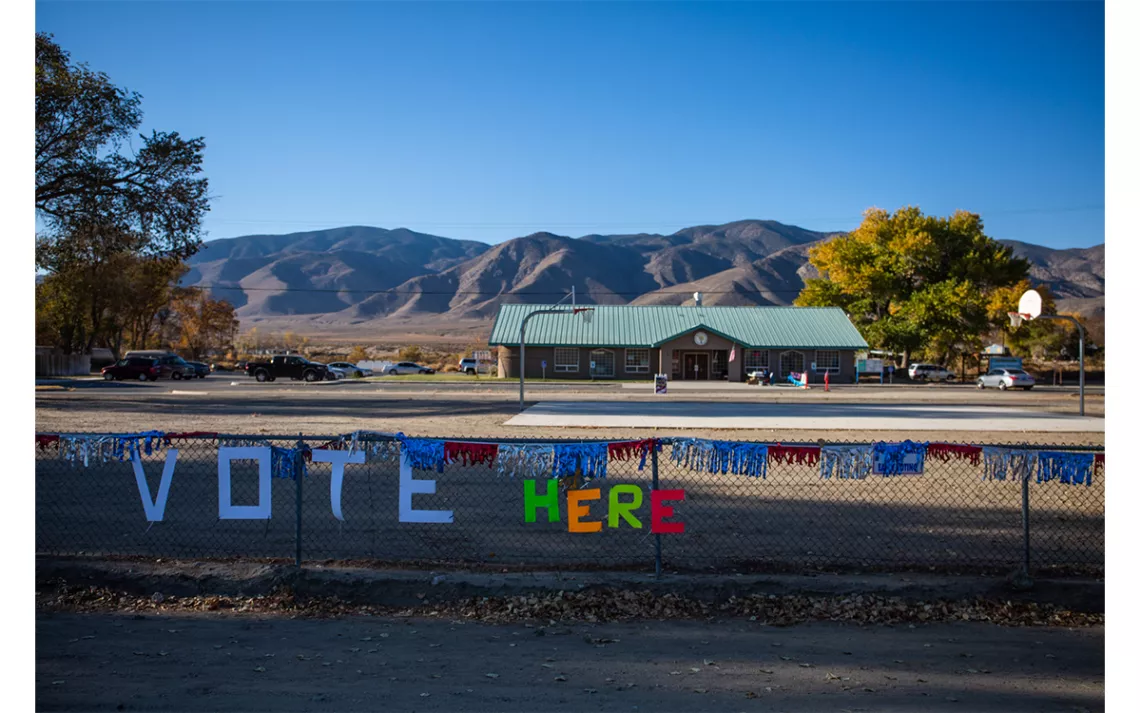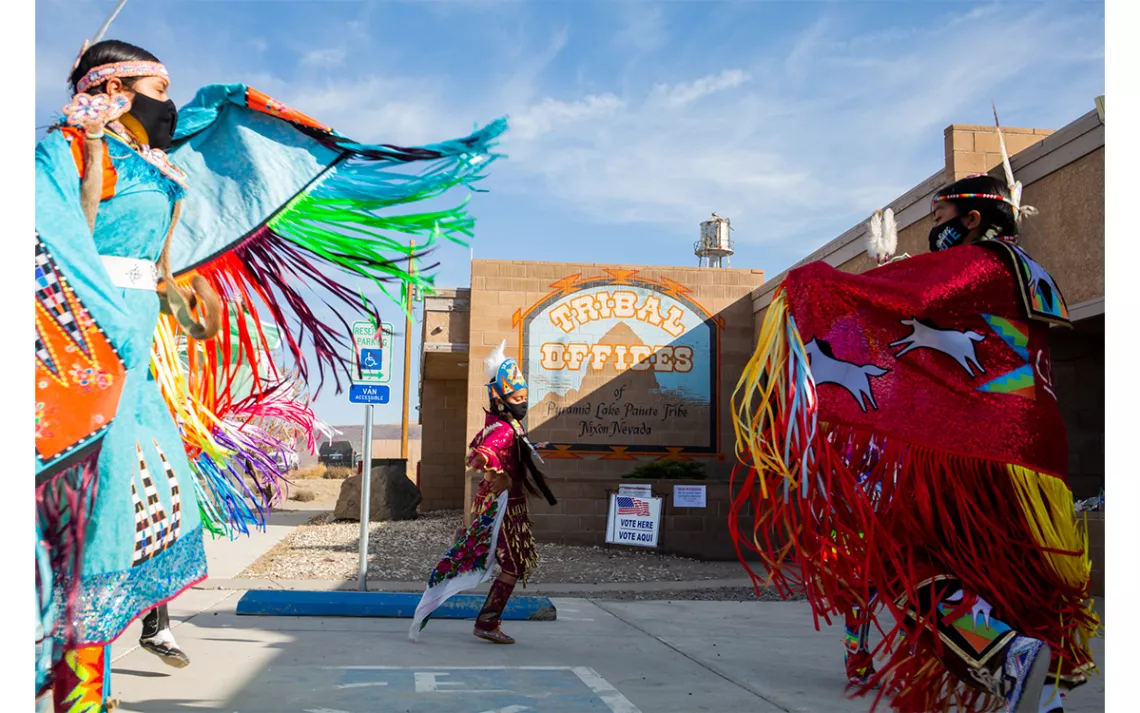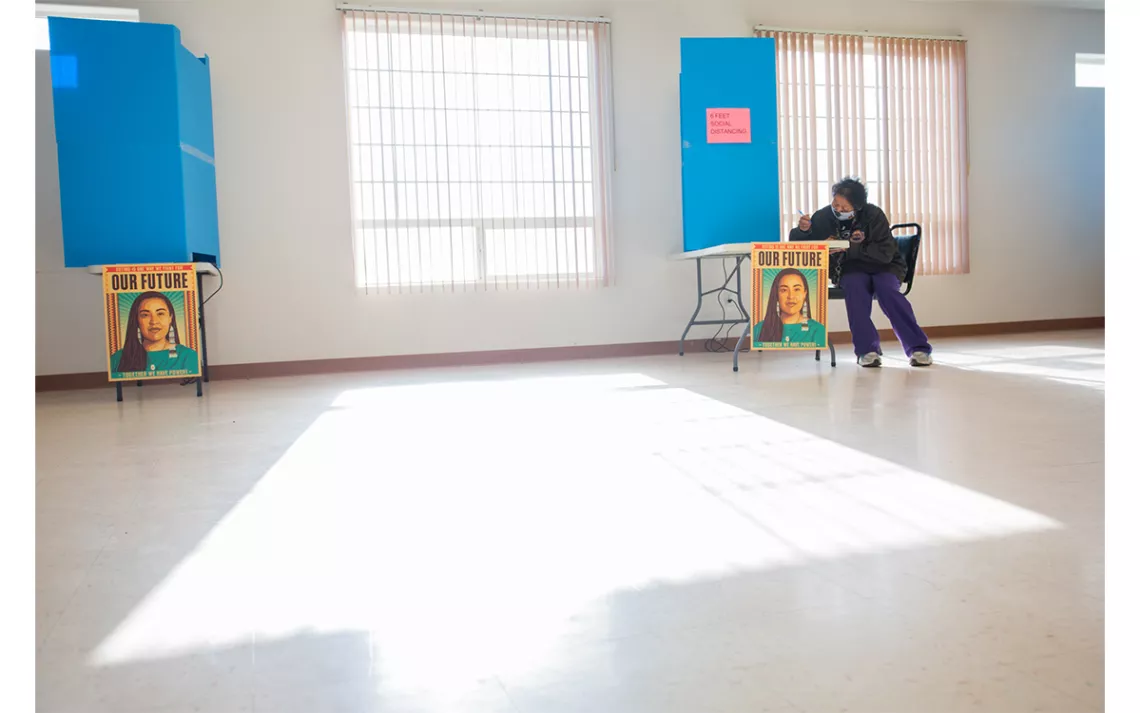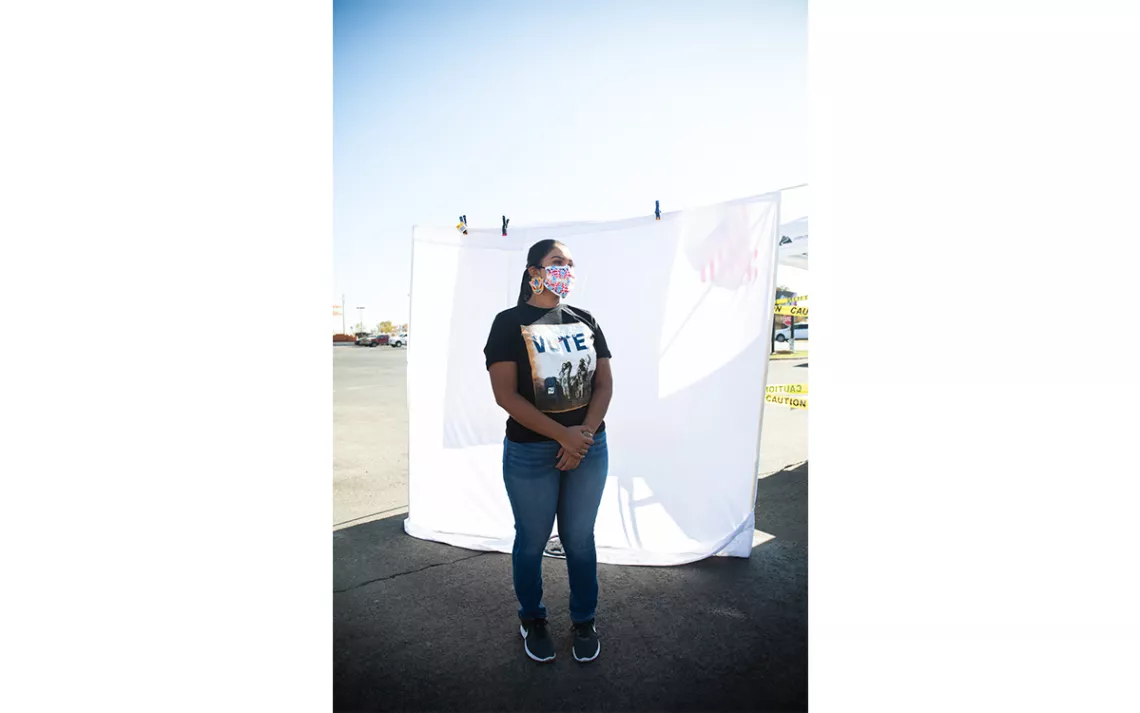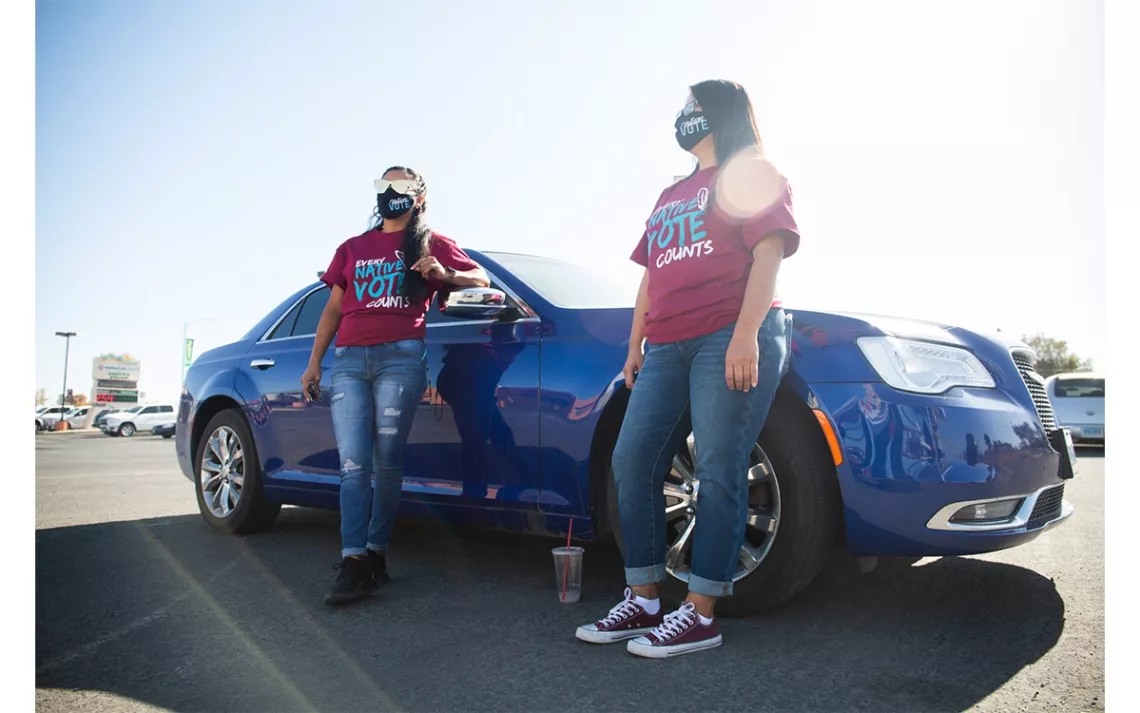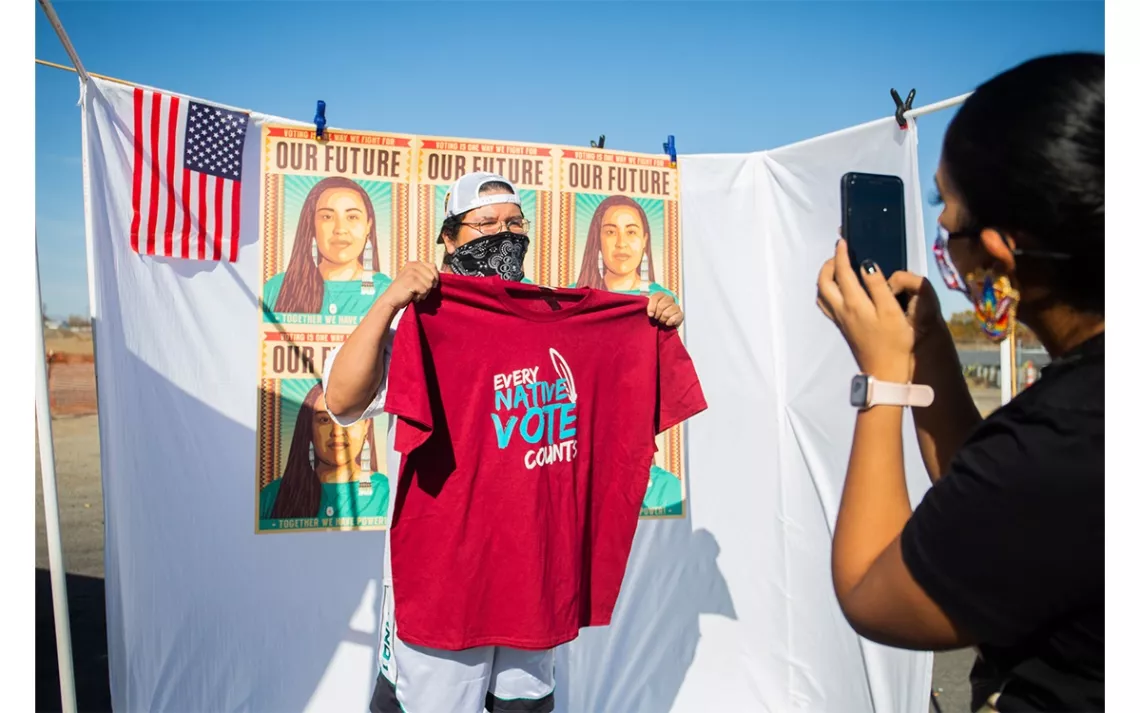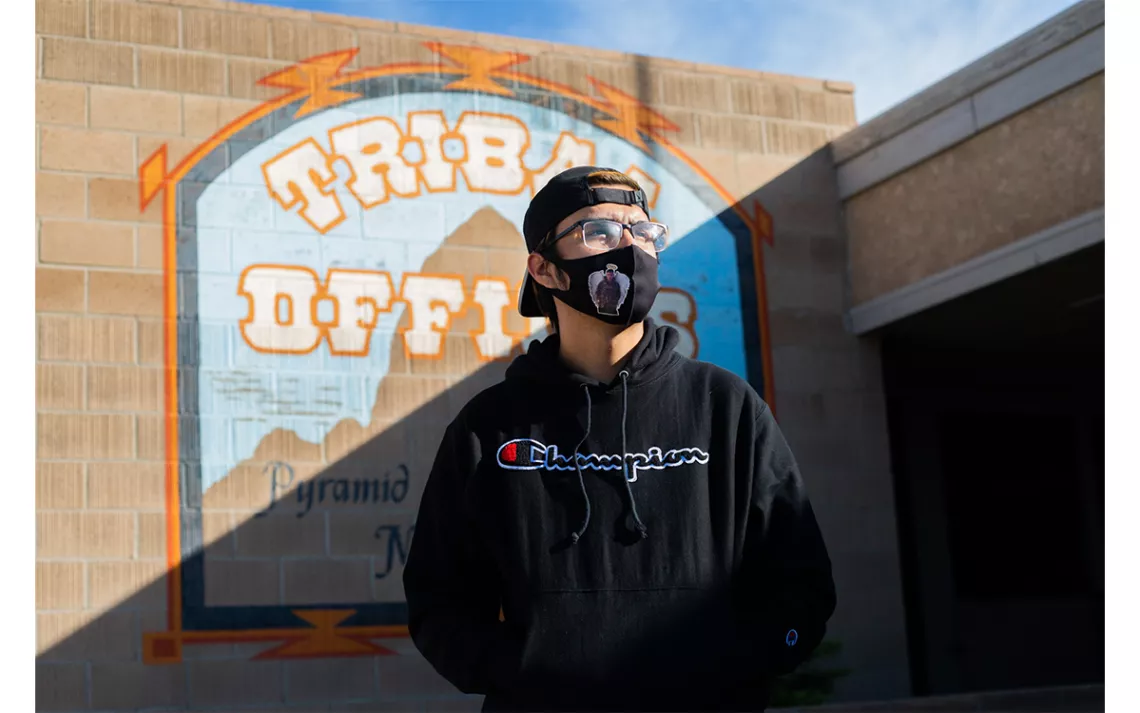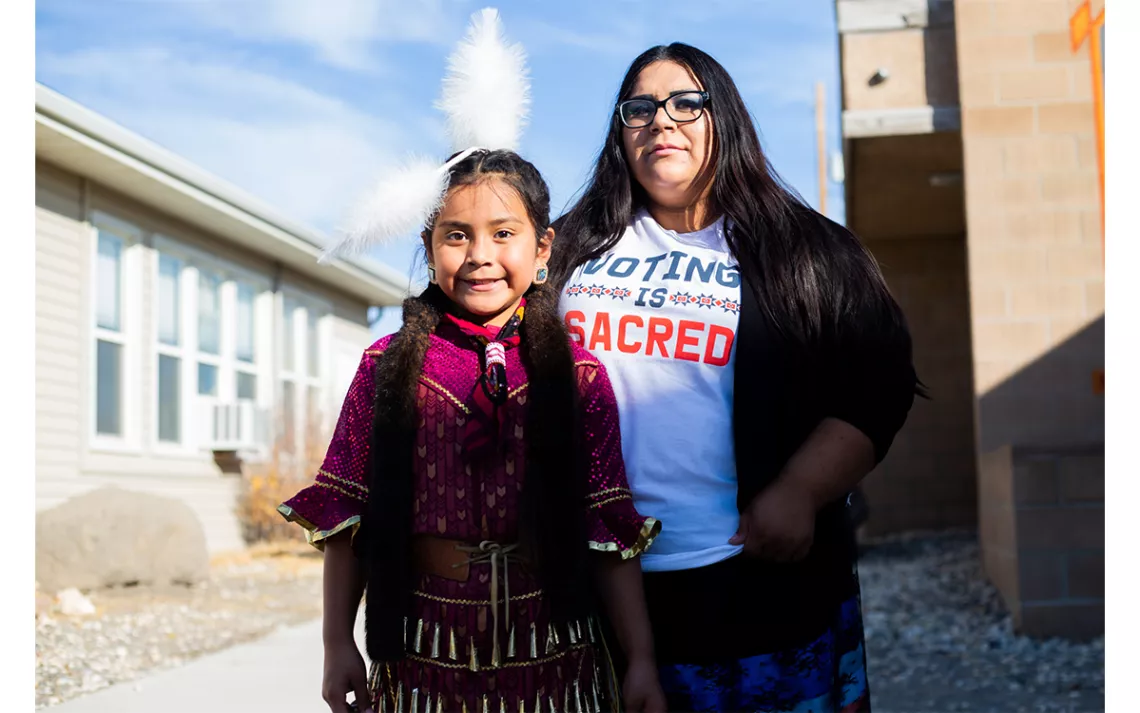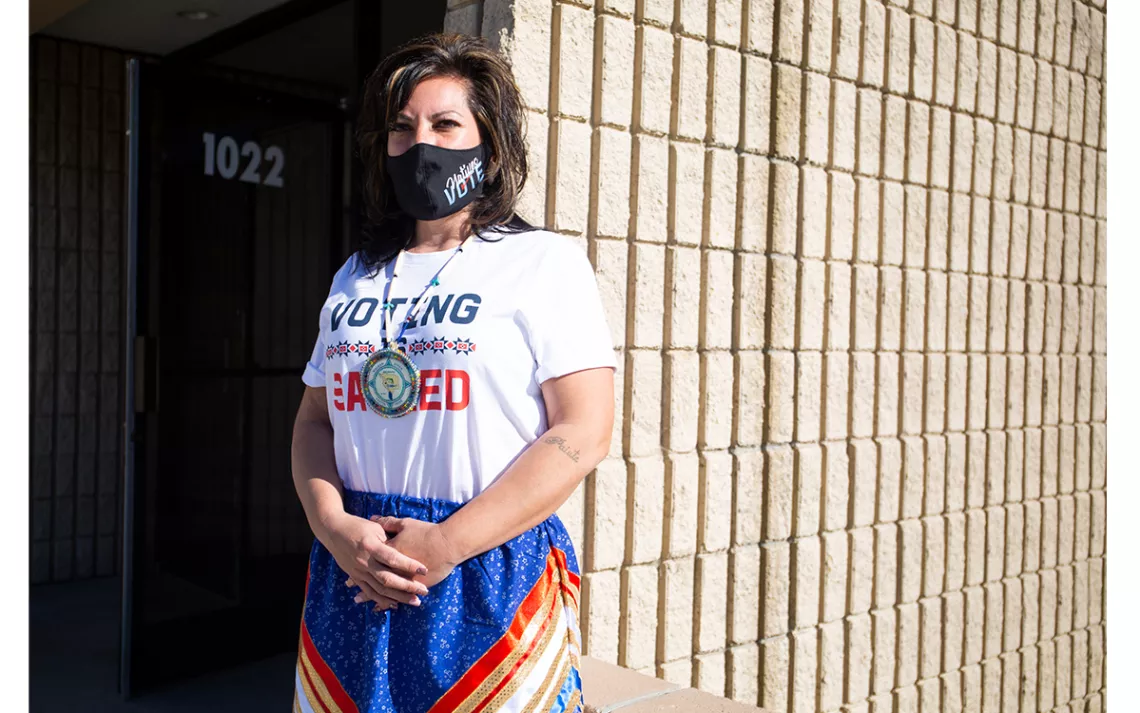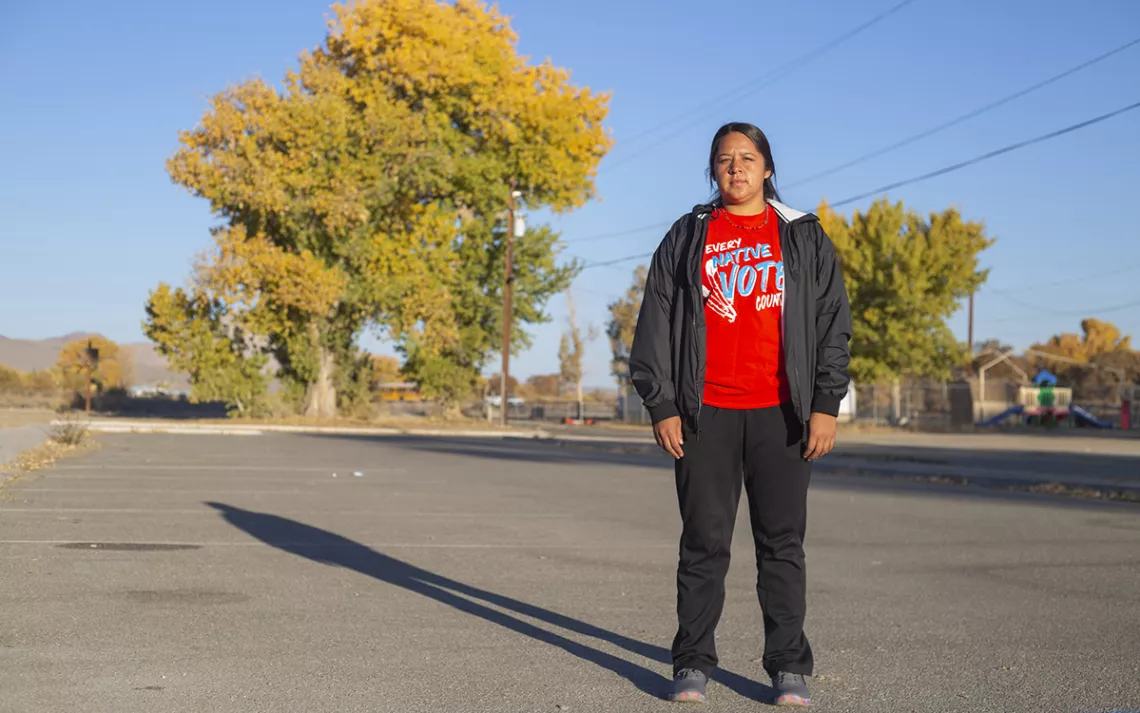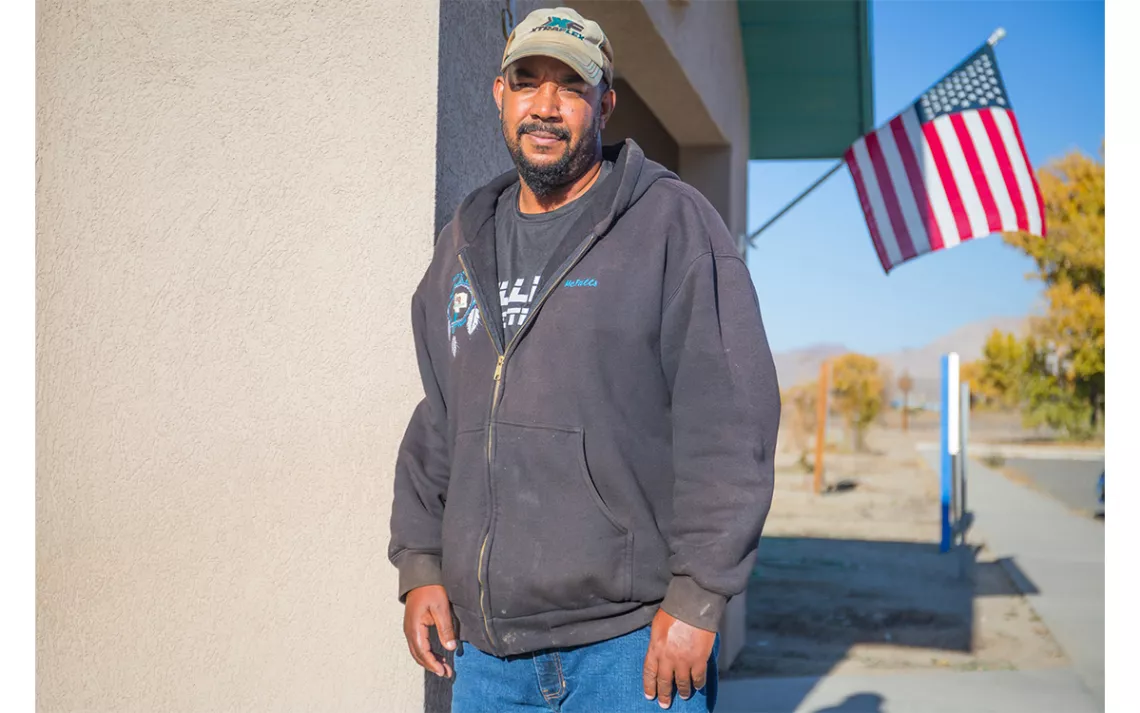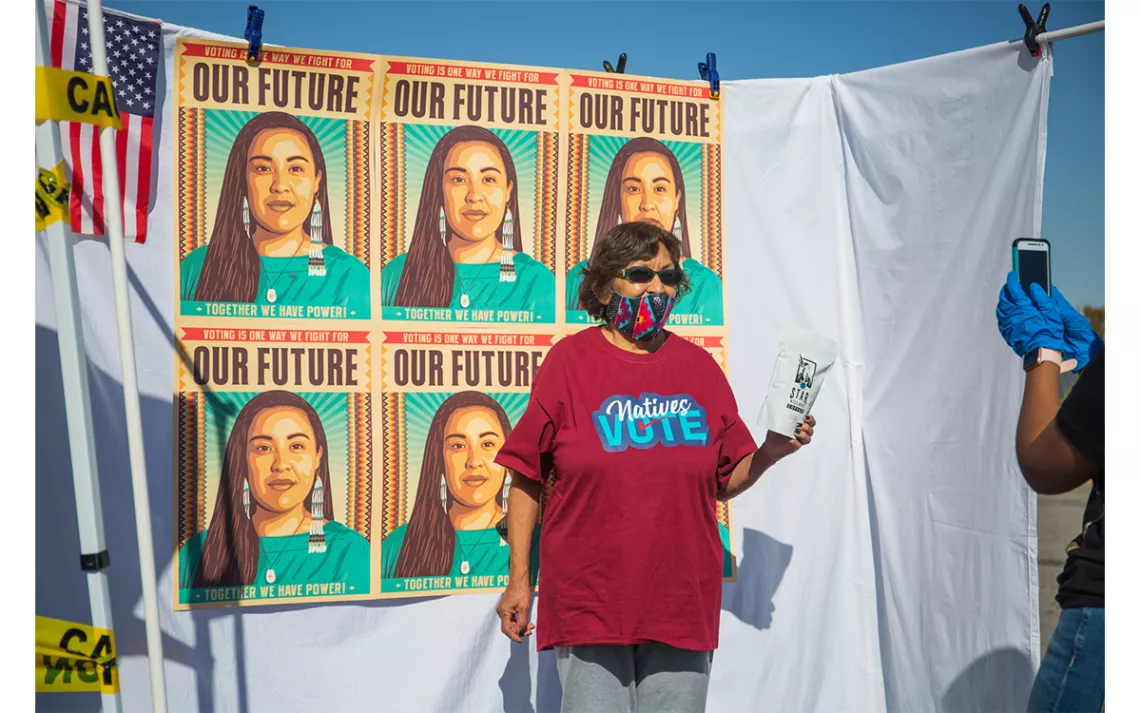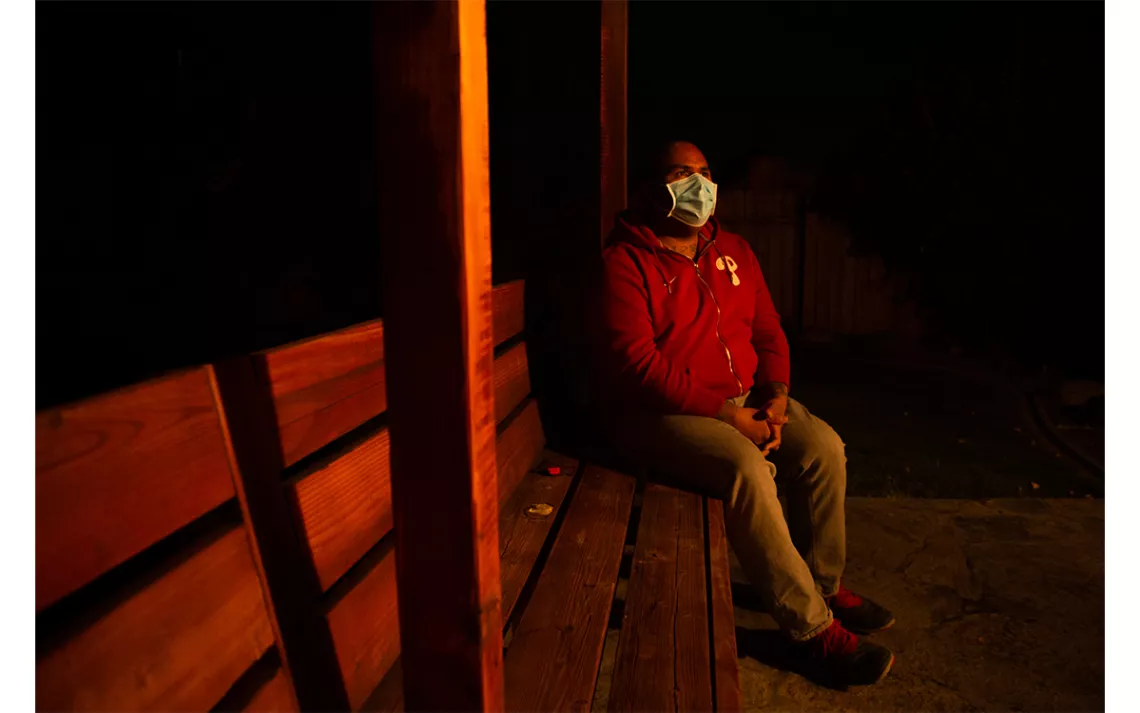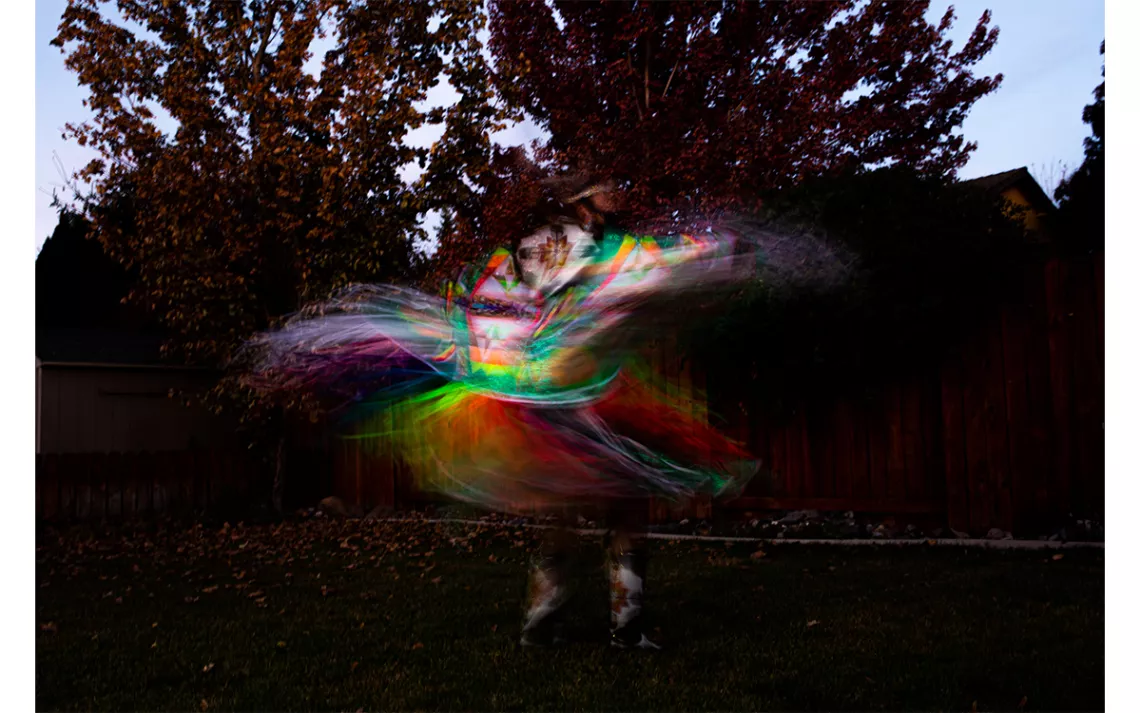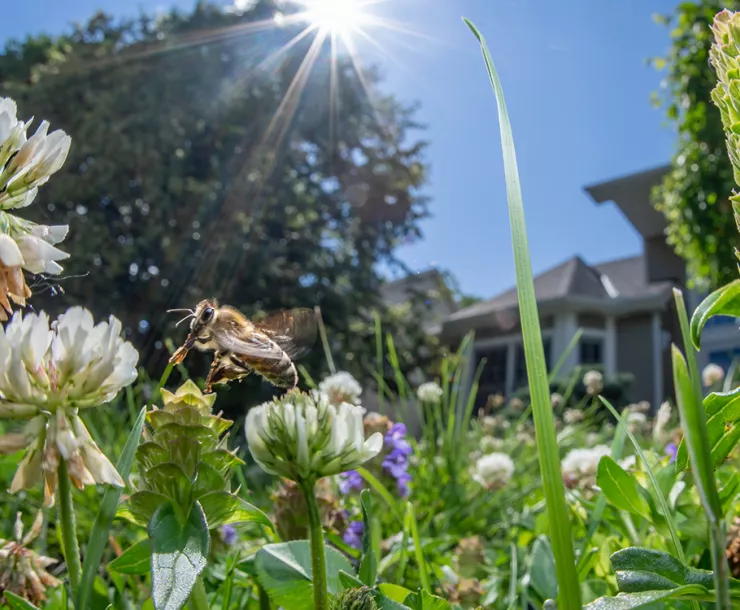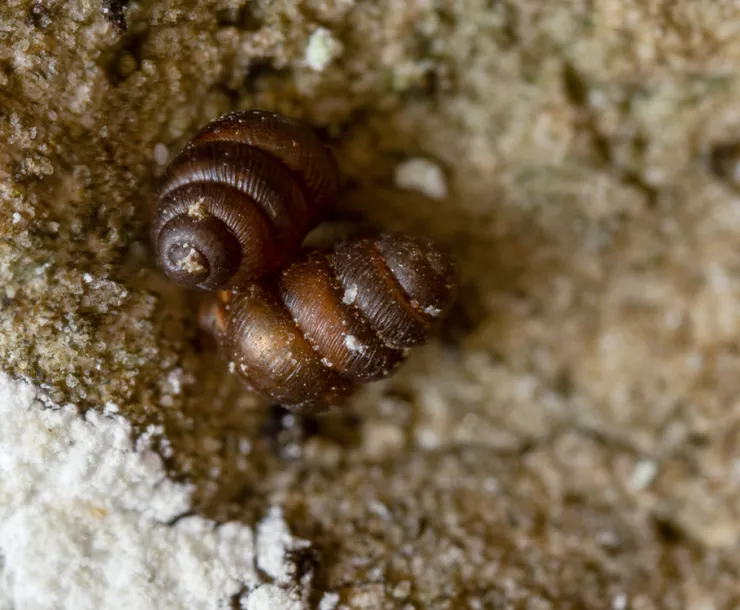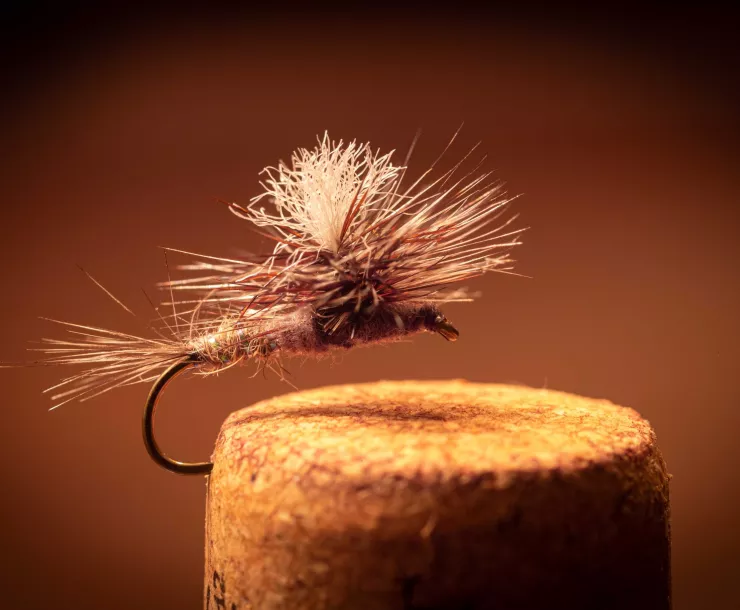Native Americans in Nevada Mobilize to Protect Their Right to Vote
Tribal organizers turn out new voters with a Get Out the Native Vote campaign
Photos by Nina Riggio
Native Americans from Nevada’s 27 federally recognized tribes account for about 3 percent of the state’s voting-age population, according to the National Congress of American Indians. That’s 60,000 potential voters. Nevada has been a swing state for decades; in 2016, Hillary Clinton won by just 2.4 percent (about 27,202 votes).
“We need more exposure. Our vote matters, and we’ve only had the right to it for 58 years,” said David Andrews, an enrolled member of the Walker River Paiute Tribe.
Native American voters in Nevada are poised to play an important role in the state's election this year. A years-long effort to combat a legacy of voter suppression that dates back to when Indigenous people first gained the right to vote began to pay off in 2016. The Walker River Paiute Tribe and the Pyramid Lake Paiute Tribe won a lawsuit against the state of Nevada to establish early in-person voting and Election Day polling sites in towns located within their respective reservations.
Brian Melendez, an enrolled member at of the Reno-Sparks Indian Colony, founder of the Nevada Native American Caucus, and one of the coordinators with the Nevada Native Vote Project, explained that only a third of the tribal communities in the state have access to both an in-person polling location and a ballot drop-off box. The remaining voters face the prospect of driving up to 100 miles to cast their vote.
Brian and his wife, Teresa, have been using their own tax return to front money for the Nevada Native Vote Project, which included creating voter infrastructure, organizing volunteers and canvassers, buying T-shirts and stickers, and posting videos and messages on social media.
“We do this work knowing that we may never see the fruition of it. Our communities need something to stand on, and if that means we have to do all this and never see the outcome, well that’s just what has to happen,” Melendez said. “We at the Nevada Native Vote Project are trying to become the liaisons between tribes and the county clerks, because sometimes the tribes don’t understand the process of getting a polling site set up, or they just don’t agree on a certain date and then it’s too late, or the county clerks just don’t want to help at all.”
Melendez is a fan of Native scholar Vine Deloria, who in 1969 wrote Custer Died for Your Sins. He often returns to this quote in the book for inspiration:
The greatest potential, as yet untapped, lies in Nevada. With a small total population concentrated in Las Vegas and Reno, Nevada is presently on the threshold of development. Some 26 tribes, mainly Paiutes and Shoshones, live in Nevada. If these tribes were ever to form a strong political or economic alliance, they would exert tremendous influence within the state. The Nevadan Indian population is fairly young and the possibility of its developing a strong Indian swing vote as it comes of age is excellent.
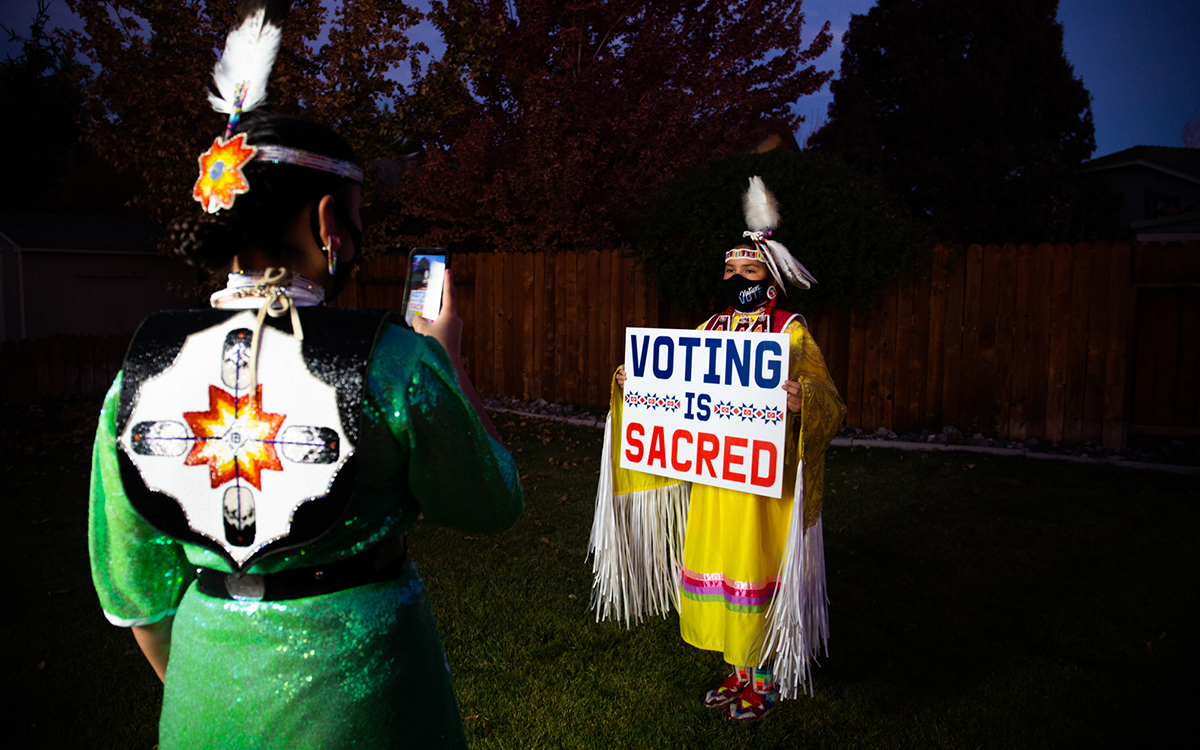
Tziavi and Pasituva Melendez.
“I want our people to think more about how we are existing, the reasoning behind why we function the way we do,” Melendez said. “There are so many elements to why we function the way we do, or why we don’t vote—structural racism, colonization. There are so many layers, and ultimately the invisibility of tribal communities factors into all of this.”
Unnecessary, discriminatory hurdles to the ballot continue to harm Nevada’s Native voting communities. Native leaders, like Melendez and Chairwoman Amber Torres, say they must advocate for themselves or continue to suffer neglect at the hands of their own federal government.
 The Magazine of The Sierra Club
The Magazine of The Sierra Club
